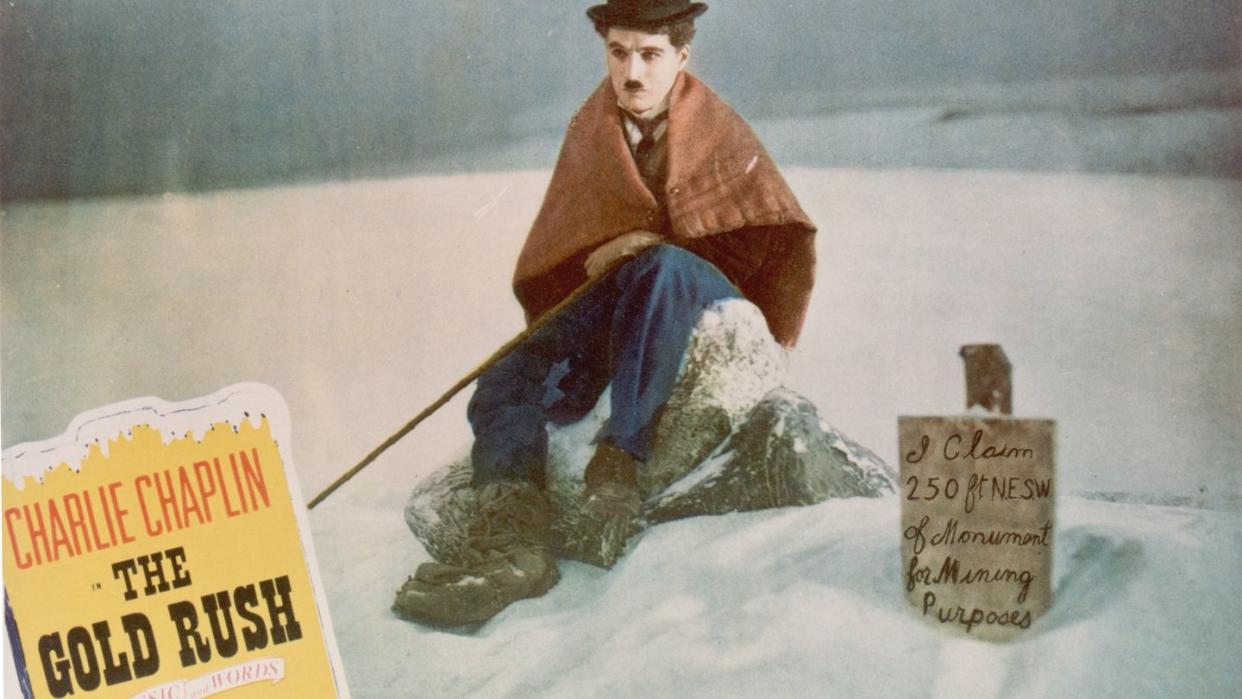'Trash and Treasure Side by Side': What Entertainment Will Look Like After the Strikes

"Hearst Magazines and Yahoo may earn commission or revenue on some items through these links."
Imagine going to a movie theater having only seen silent films and hearing sound for the first time. The black and white pictures on screen were suddenly alive with dialogue, overtures, and sound effects. Charlie Chaplin's pantomimes were out; Clark Gable's dramas were in.
The "talkies," as they were known in the early 1930s, were touted as a scientific transformation—"the most marvelous accomplishment since the discovery of electricity,” Hollywood director Roy Del Ruth said at the time. The new technology minted stars, ruined corporations, established Hollywood as a power center and, ultimately, changed the way people interact with not only entertainment but also each other. "Hollywood possessed the nation," historian Arthur Schlesinger, Jr. wrote. "It formed our images and shaped our dreams."
Ninety years later, I feel possessed by a different all-powerful source. As I lay in bed with the volume turned all the way down on my phone, swiping through Instagram influencers' versions of silent films, and knowing that every split-second decision trains the algorithm to generate an even more addictive feed for next time, I recognize that the people I perceive as "stars" are nobodies to my wife, who will wake up in a few hours and scroll a totally different timeline. A decade ago we watched ABC's Modern Family together on old-fashioned broadcast TV. Now we watch actual modern families who make their own movies for TikTok and YouTube.
This experience, shared by millions of Americans, is a viewing revolution as significant and disruptive as the introduction of "talkies." Smartphones have turned everyone into moviemakers and streaming platforms have given access to every story in the history of mankind. It’s unleashed an avalanche of change, resulting in a complete reordering of media and tech power.
I have covered media for nearly two decades, first with my own blog, then at The New York Times, then on CNN. I’ve also tasted the industry’s disruptions firsthand—as the host of cable and streaming shows that CNN canceled last year following the merger of WarnerMedia and Discovery. I am writing this from a green room at 30 Rockefeller Center, the skyscraper that’s home to NBC. When the building opened in 1933, NBC was America's first radio network; the cavernous Studio 8H, now home to Saturday Night Live, originally housed symphony orchestras that were heard, not seen. Future SNL performances won't just be heard and seen, they will be felt and maybe manipulated through transportive technologies. If NBC doesn't figure out how, Apple and Meta will.
Sensing these dramatic shifts, the writers at SNL, along with more than 11,000 of their fellow film and TV writers, went on strike in May. Actors followed suit a month later. Both guilds were right to worry that rapid advances in AI could ChatGPT them out of jobs. The Hollywood studios and Writers Guild of America struck a tentative deal over the weekend, meaning writers will likely be back at work with some new protections, but there is no stopping what’s coming: 24/7 streams of customized AI-generated audio and video. A truly infinite amount of content. Many of us won't even notice the robotic source—unless we’re part of the entertainment. Movie studios are already talking about how to insert paying customers into movies and swap out the faces of characters.
I believe many of us will still seek out communal experiences and stories made by humans—and pay a premium for it. The craft of storytelling is what distinguishes professional work from an endless parade of amateur pop-up videos. But the future of media is all of the above: trash and treasure streaming side by side for eternity.

For consumers, it will be thrilling—and overwhelming. As Alvin Toffler forecast in his 1970 book Future Shock, people of the future "may suffer not from an absence of choice but from a paralyzing surfeit of it." The problem of discovering what to watch next is real. (The world needs a new TV Guide.) The more it's solved, the more valuable Hollywood's libraries will become.
Weaker companies will try to merge their way to relevance, mostly unsuccessfully, while stronger ones will develop these new systems and formats. The idea of Hollywood will expand—picture Roblox, Twitch, and OnlyFans as powerhouse studios, minting celebrities far outside the traditional system—as well-known corporations shrivel and die. In this world, power will accrue to the creators and the platforms, but also to the curators and remixers who help people navigate a world where everyone consumes everything on every device all at once. There will be a million versions of NFL RedZone for a million different affinity groups.
And you, the viewer, will have both a front-row seat and a voice in how it all shakes out. Your attention and your dollars will determine the future of media. Remarking on Hollywood’s silent era, historian Scott Eyman wrote, “Viewers had to supply the voices and sound effects; in so doing, they made the final creative contribution to the filmmaking process." Once more, we will all be participants.
Keep Reading:
You Might Also Like
